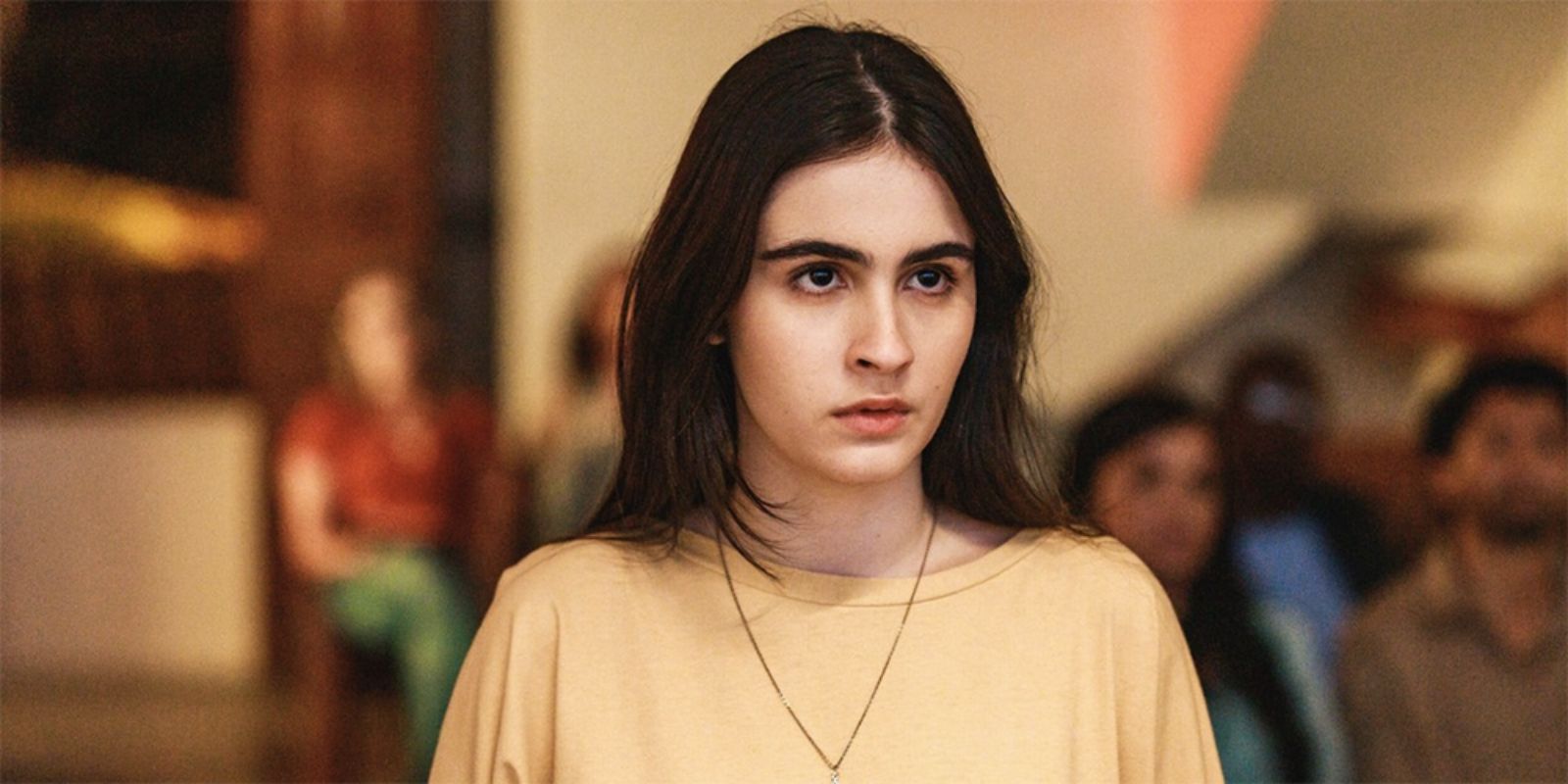A good deal more restrained and nuanced than The Craft and Carrie, Raquel 1:1 takes itself perhaps a little too seriously, presenting a rather straightforward tale of a repressed young woman living in a small town where everything is simple if you have faith. Starting over with her dad Hermes (Emilio de Mello), Raquel (Valentina Herszage) moves across Brazil to an old family home. Once there, Raquel—who considers herself religious even if she doesn’t regularly practice—encounters Laura (Eduarda Samara) and Ana (Priscila Bittencourt), who invite her to be part of the local church. Ana’s mother Elisa (Lianna Matheus) is the local pastor who gives daily, fiery sermons as Ana leads the youth outreach and group activities.
While spying on Laura and Ana swimming, Raquel finds herself drawn to a brick shack in the middle of the woods which becomes central to the story’s supernatural elements that are never neatly explained nor resolved––you just got to go with it.
Like Ana’s sermons, you do have to just “go with” a lot of Raquel 1:1, a journey that proves to be quite evocative and rich in atmosphere. The structure follows a playbook we’ve seen before, placing some key exposition at the very end of the film before backing away from a moment that could be viewed as gratuitous. Still, it teases a multitude of possibilities and instead chooses a kind of middle ground, perhaps restricted by its budget.
The solo feature debut of Mariana Bastos (who previously directed shorts and co-helmed the feature Something Like That), Raquel 1:1 makes the most of a limited budget, focusing on the psychological effects of a supernatural possession as Raquel attempts assimilating while helping her father clean up the family’s apocalyptic mini-mart. The atmosphere of the house, photographed by Fernanda Tanaka, seems to conjure supernatural possibilities—Raquel has taken residence in what we’re told was her grandfather’s room.
This is the kind of town where everyone knows each other’s business, hinting at the potential for subplots and baggage—it’s teased that Elisa and Hermes seem to be familiar with one another. Raquel’s place in town becomes further complicated when a video goes viral, leading to speculation in the small religious community that she’s a witch. The film is effective at world-building, and one gets the sense its narrative could be part of a larger story or might function as the pilot in an episodic work.
Raquel 1:1 is rooted in moral horror and subtlety rather than concerned with jump scares and other expected devices of the genre. The ending, as Laura and Raquel form an alliance based upon being outsiders, doesn’t quite strike the right note; it depends on reasons explained as the film enters its third act. What might be missing is a little more character development. Concepts and ideas are here, but the film seems to have lost an opportunity to push its ideas further. There is room to up the ante without veering into more straightforward horror. Writer-director Bastos could easily get more mileage out of Raquel‘s psychological terror, isolation, religious themes, and cult practices while keeping its restrained narrative intact.
Raquel 1:1 premiered at SXSW 2022.

